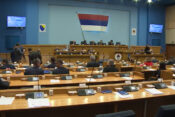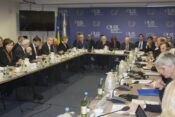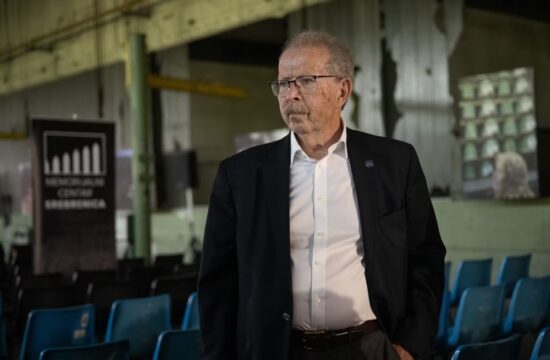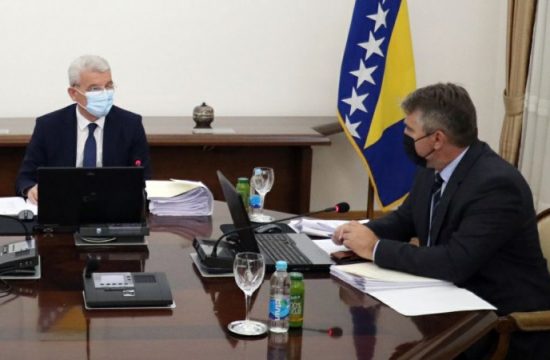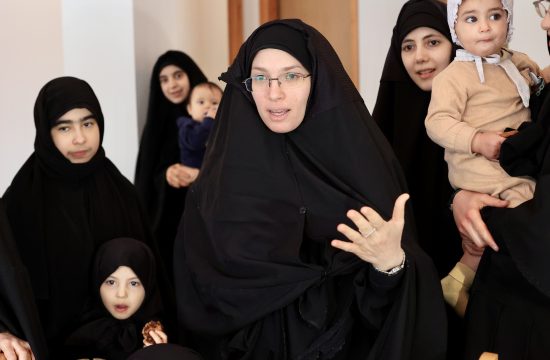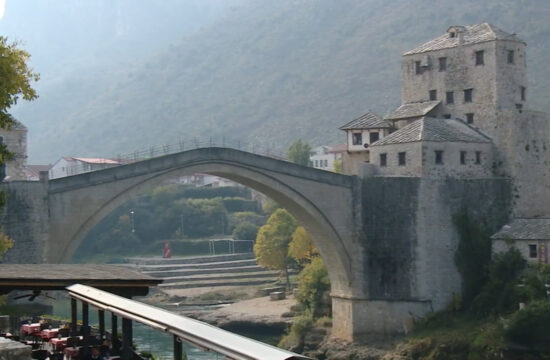
If the US Ambassador thinks he can make threats he is mistaken, Bosnian Serb leader Milorad Dodik said on Wednesday after the US Embassy tweeted that all those who undermine the stability, prosperity and peace in Bosnia will bear “real-life consequences.”
Dodik and US Ambassador Eric Nelson met on Wednesday, and the Bosnian Serb leader said they had a “good conversation” but that it, at some point, turned into threats.
“I responded to everything he told me. There were some things I consider threats and I can’t believe they would engage in something like that. Bosnia and Herzegovina belongs to us, not to him, and he is making threats in its defence,” Dodik, who is the Serb member of Bosnia’s tripartite Presidency, told reporters in Sarajevo.
After the meeting, the US Embassy tweeted that “the US expects nothing less than full respect” for the 1995 Dayton Peace Agreement which includes Bosnia's Constitution and for the country's “territorial integrity and sovereignty.”
“For 25 years, the U.S. has been a strong partner of BiH (Bosnia and Herzegovina), fully supporting the prosperity, stability, and peace of this country. Actions that undermine those goals bear real-life consequences,” the Embassy added.
The tweet came in light of Bosnia’s latest political crisis.
The parliament of the Serb-majority semi-autonomous part of Bosnia, Republika Srpska (RS), on Monday instructed its representatives in state institutions to stop participating in any decision-making processes until a law removing the foreign judges from the Constitutional Court is adopted.
This means that state institutions will effectively be blocked.
The move came after the Constitutional Court declared that public agricultural property in Republika Srpska should be owned by the state and not by the RS.
According to the Constitution, the Constitutional Court is composed of nine judges – two Bosniaks, two Croats, two Serbs and three foreigners. Dodik has been accusing the institution of working against Republika Srpska, arguing that the three foreign judges frequently side with the Bosniaks and outvote the Croats and the Serbs.
If Nelson thinks he can make threats, he is mistaken, Dodik said.
“I told him that our policy is modest but proud and that we will not give up on basic principles regardless of the power of the USA and they expressed a threat in this way. I’m sorry that he did this,” he added.
The Bosnian Serb leader also mentioned the sanctions the US imposed against him in January 2017 for his “role in defying the Constitutional Court of Bosnia and Herzegovina in violation of the rule of law, thereby actively obstructing the Dayton Accords.” The Bosnian Serb leader can not access any of his property or assets that are under US jurisdiction.
Dodik stressed that no sanctions can stop him in defending the interests of Republika Srpska.
“We had a constructive meeting and I thought it would continue that way. But now, after a threat was uttered, it is a different story,” Dodik said.
He also commented on the joint statement by the Peace Implementation Council (PIC), an international body composed of countries overseeing Bosnia’s peace, which called the effort to block state institutions “unacceptable.”
According to Dodik, PIC’s statement represents interference in Bosnia’s internal matters.
“Why do they care about political processes, what do they have to do with that and who gave them the mandate to do so? They just took that mandate and they are intruders in this country,” he said.
He added that the PIC was “imposed” in Bosnia and has “nothing to do with the political system in Bosnia and Herzegovina and the Dayton Peace Agreement.”
“They don’t exist in the Dayton Agreement. So I never read their statement nor do I care about it,” he concluded.


